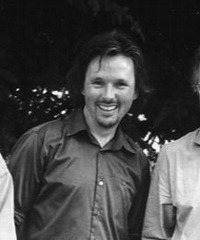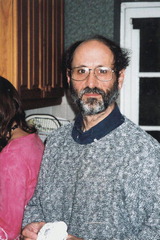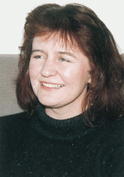Prejudice/ Racism. The word 'prejudice' basically means to 'pre-judge', and in this sense always refers to some kind of negative preconception held against a particular social grouping or person. The grouping may be based on religion, social class, geography, or many other factors. When the prejudice is based on 'race', it is termed racism. The concept of 'race' does not have any sound biological basis, and it must therefore be understood as a social category that is used to identify self and others. Many psychologists, from a variety of perspectives, have done research on prejudice and racism. Pre-judging, in a less negative sense, is an inevitable part of categorization in the course of everyday life. We tend to categorize stimuli and experiences on the basis of our pre-existing schemas. A schema is a mental structure containing knowledge relating to a particular kind of object. Schemas lead to schematic processing which is usually an efficient way of processing information based on pre-existing schemas. But schemas can also limit and sometimes distort what we perceive. Schematic processing leads to overgeneralizations which, in some social, cultural and personality contexts, can lead to prejudice. 

Anti-psychiatry movement (1960 - 1975). The anti-psychiatry movement developed from criticisms of the medical model of mental illness, best exemplified by Thomas Szasz's 'Myth of Mental Illness' (first published in 1961). According to Szasz, a medical approach to mental illness is untenable because the symptoms treated by the psychiatrist involve a subjective judgement that what a patient says is not believable. Szasz began his assault in psychiatry by stating that:\nI submit that the traditional definition of psychiatry, which is still in vogue, places it alongside such things as alchemy and astrology, and commits it to the category of pseudo-science (Szasz, 1987, p. 17). One of the outcomes of Szasz's version of anti-psychiatry is that those traditionally defined as 'mad' should be made to take responsibility for their actions and, hence, should be seen as 'bad', not mad. A different approach is taken by another figurehead of the anti-psychiatry movement, R.D. Laing (1964). According to Laing, schizophrenia is effectively a label rather than a mental illness. The goal of treatment should not be to address the patient's symptoms, but rather to accept their experience as valid, and potentially meaningful. The goal of treatment is thus to guide the patient through their experiences, so that the experience is beneficial and the outcome is enlightenment, rather than medical intervention. However, there is little evidence that experiencing schizophrenia makes one a 'better person', and the outcomes of Laing's treatment were not often enlightenment for the patient. Nevertheless, the focus of the anti-psychiatry movement on the power of labelling has influenced how mental illness is represented to both patients and society. 

The 1980s. In 1979 a hitherto little noticed former minister of education, who had become leader of the Conservative party after Edward Heath in 1975, led the party to general election victory. Margaret Thatcher became the first woman to be British Prime Minister, and remained at the head of the UK government and parliament until her resignation in November 1990. She is widely credited with changed the political and cultural face of Britain, and of being the defining figure of the decade of the 1980s. In the 1970s there was a world recession and it was felt by all economies and people. This produced social and political unrest in its wake, and created the context for a driven ideologue of traditional conservative values and beliefs. Margaret Thatcher set out upon a programme of privatisation of public services (which she famously termed 'rolling back the state'), and legislation designed to minimise or even destroy the power of the Trades Unions. She redefined the political terrain of the UK by claiming that there was no area of life that is not political, and by defining political activity as necessarily adversarial. In 1983 she initiated and won a patriotically fuelled war with Argentina over possession of the Falkland Islands in the South Atlantic. In 1984 she interpreted a strike by miners over pay and conditions as a challenge to government, and used legislation and troops quell it; in the same year the IRA bombed the conference where the Conservative party was holding its annual conference and killed 5 people. Her most controversial innovation, occasioning demonstrations around the country and contributing in no small measure to her eventual resignation, was the introduction of the so-called 'Poll Tax' – a per capita tax applied to all those on the electoral roll and replacing another tax ('the Rates') which had been based only on the value of owned property. Her influence on other politicians and the politics of the US and other European countries was substantial. She was extremely close personally and politically to Ronald Reagan, President of the USA for nearly the entire decade (1981-1989) .\nIn 1985 Mikhail Gorbachev took over as leader of the Soviet Union. A reformer, he introduced the concepts of glasnost and perestroika, and the idea of reconstructing the communist system. This reached its climax in 1989 when the East and West German authorities reached agreement on pulling down the Berlin wall. After this, Czechoslovakia, Romania and the rest of Eastern Europe initiated a flurry of reforms that were to lead in the next decade to the complete collapse of communism in Eastern Europe. However the remaining major world communist power, China, responded to this perceived threat to its political ideology with a wave of domestic political repression, culminating in the Tiananmen Square massacre when hundreds of demonstrating students were killed and thousands injured – and seen to be so on televised news around the world. \nArtistically and culturally this decade began the post-modernist trend. In youth culture the decade belonged to Punks – a style of dress and behaviour modelled on anarchism, and styled as anti-authority, traditional values and organised society. Popular music was dominated by punk, and new romanticism – which positioned itself in opposition to punk. 

Applied Psychology uses psychological methods and findings to explore possible solutions to particular practical human problems. The term 'applied psychology' covers a very wide range of perspectives, techniques, and methodologies. \nIn World War I, psychometric tests were used in the United States to enable the rapid selection and placement of new recruits in the armed forces. In the Second World War, governments employed psychologists to help in personnel selection, changing public attitudes, propaganda, and the treatment of trauma. 

Attitude. This concept originally arose within social psychology as an attempt to define an individual's (or a group's) viewpoint about a particular person or situation. An attitude is the outcome of a combination of a person's beliefs (cognitions) and feelings and is thought to be an influence on behaviour. Thus attitudes have often been sub-divided into affective (feeling), behaviour (action), and cognitive (thinking) aspects (easy to remember as 'the abc' of attitudes). The emphasis for many decades was primarily on the cognitive component. Initially, social psychologists tended to see 'attitude surveys' as giving information which would quite directly relate to people's predispositions to act in certain ways. However, they now recognise that the relationship between attitudes (as revealed in typical attitude surveys) and behaviour is a much more complex one. 

Ideology. Although the term 'ideology' is quite often used with a negative ring to it, it basically refers to a coherent philosophy or worldview made up of various ideas, values, beliefs, concepts and symbols. Therefore, we all use ideology in all our communications and interactions. 

Post-modernism and French social theory (1974 to present day). During the 1970s and early 1980s, new intellectual influences such as the writings of French philosophers and social theorists Jean-François Lyotard, Michel Foucault, Roland Barthès and Jacques Derrida began to influence psychology. In general, these authors can be seen as sharing a rejection of the central assumptions of the modern world (i.e. modernism): First the assumption that modern society will become more democratic just because of our growing ability rationally and objectively to understand society's best interests Second the assumption that scientists and social theorists hold a privileged viewpoint because they are assumed not to operate with local interests or bias. Both of these assumptions suggest the possibility of disinterested knowledge, universal truths and social progress. The late twentieth century writings of Michel Foucault (1929-1984) and Jean François Lyotard called these assumptions into question. Foucault's work has argued that knowledge and power are always intertwined and that the social sciences, rather than empowering human actors, have made humans into objects of inquiry and subjected them to knowledge that is given authority by the claims of science. Similarly Lyotard has argued that social theory has always imposed meaning on historical events rather than providing the means by which it is possible to understand the empirical significance of events. Taken together such ideas are called 'post-modernist' because they follow (post-date) modernism, take forward some ideas and replace others. Post-modern theories reject the idea of social and intellectual progress and argue that we must accept three consequences of this: First, the possibility that history has no meaning or purpose, and the abandonment of the idea that we can know what is or is not true (this idea is called realism) and instead recognising that knowledge is socially constructed. Second, we must accept that science can never create and test theories according to universal scientific principles because there is no unitary reality from which such principles can be established Third, that we live in a fragmented world with multiple realities. As a result we must be sceptical about claims to authority based on certainty of knowledge or science. The clearest expressions of a post-modern approach to psychology can be found in social constructionism and discourse analysis. Written by: Course Team. 



